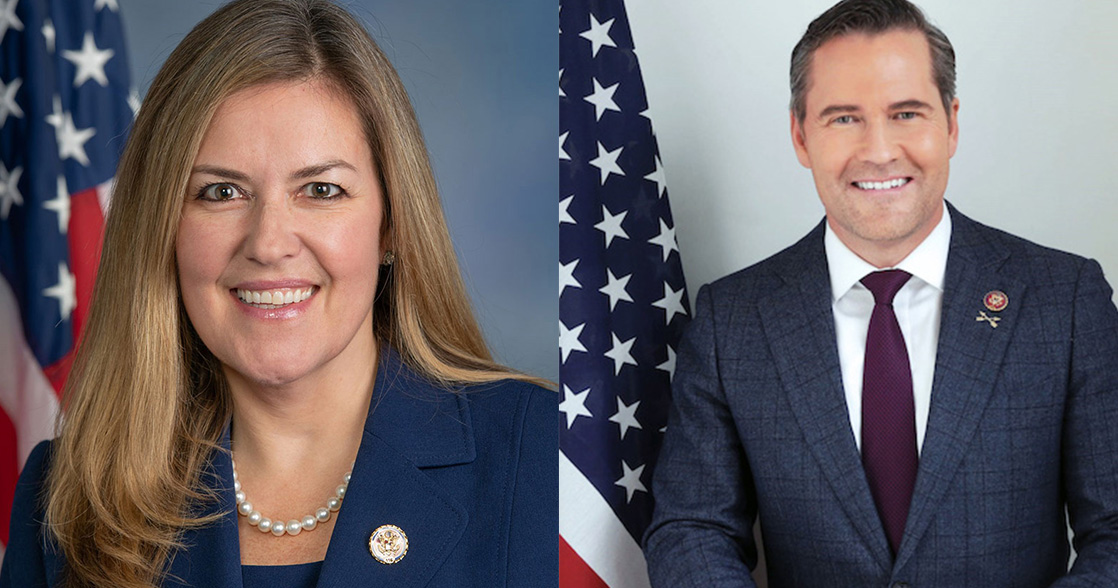
Rep. Jennifer Wexton (D-VA-10) and Rep. Mike Waltz (R-FL-6), both two vocal critics of the upcoming Winter Olympics in Beijing—discussed China’s ongoing human rights violations in a December webinar hosted by George Mason University’s National Security Institute (NSI).
The discussion, “2022 Winter Olympics: Standing up to China’s Human Rights Abuses,” was moderated by the institute’s Les Munson, former staff director of the Senate Foreign Relations Committee.
Wexton is a member of the Congressional-Executive Commission on China, where she has been a voice for Uyghur community. Waltz, a member of the House’s China Task Force, has previously called on the Chinese Communist Party to end its “systematic oppression” of Chinese religious minorities.
The Biden administration announced in early December that it will not send a diplomatic delegation to the 2022 Winter Olympics or Paralympics in Beijing. And on Dec. 23, President Biden signed the Uyghur Forced Labor Prevention Act, co-introduced by Wexton and Rep. Jim McGovern (D-MA) in early 2021, underscoring the United States’ commitment to combatting forced labor, including in the context of the ongoing genocide in Xinjiang.
“Dictators love the Olympics,” Waltz said, noting that Russian President Vladimir Putin invaded Crimea two months after the Sochi Olympics.
“Major sports events should not be used to legitimize dictatorships,” said Wexton.
Wexton and Waltz also criticized the role of the International Olympic Committee in Chinese tennis star Peng Shuai’s case and hinted at the need for reforming international sports. In November, Shuai accused a top communist party official of sexually assaulting her three years ago. On Dec. 2, the Women’s Tennis Association moved to suspend all tournaments in China, in response to China’s censorship of Shuai.
“I’ve been frankly concerned that our approach to China was becoming a partisan issue. It should not be a partisan issue, human rights should be a bipartisan issue,” Waltz said.
The National Security Institute at Mason’s Antonin Scalia Law School is dedicated to finding real-world answers to national security law and policy questions. The institute's NSI 2020 project has focused on two of America’s most pressing national security challenges: the rise of China and preserving U.S. technology innovation leadership
